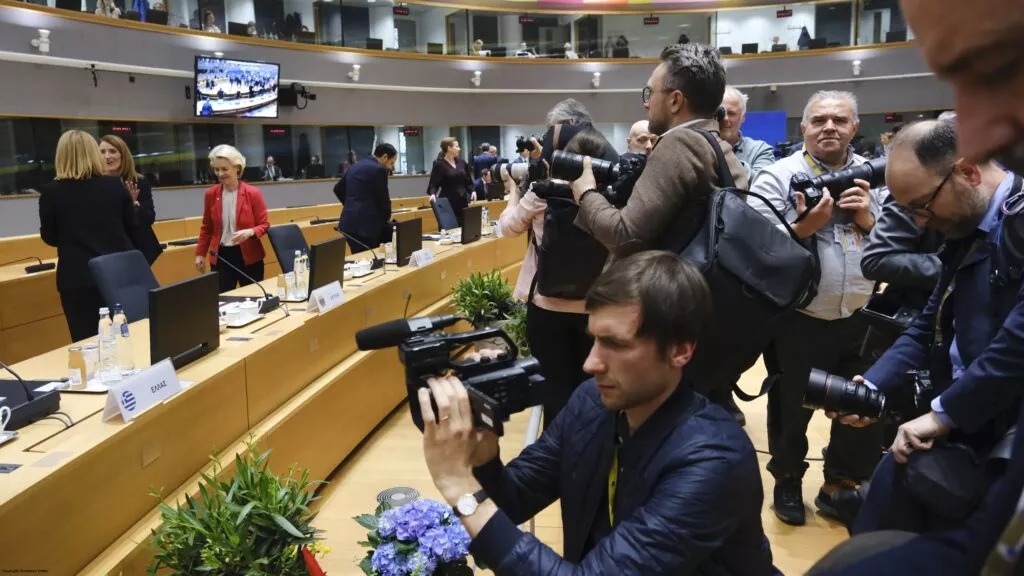Just a few hours after the adoption of the text of the European Council Conclusions, the Turkish Ministry of Foreign Affairs, in its communiqué No. 63, commented on what the leaders of the European Union had agreed on the previous night.
The Turkish statement is not only about the outright rejection of the EU’s statements but also shows that Ankara realises that it has a problem with the EU because of the Cyprus issue.
Turkey, the statement said, will never accept an approach that links Euro-Turkish relations to the Cyprus problem. This reference shows that the text of the conclusions directly links progress in Euro-Turkish relations to the Cyprus issue.
That is why it hastens, in a threatening tone (for those who want to see Turkish references realistically), to warn that “such a mentality cannot contribute positively and constructively to the problem or regional and international issues”.
In short, while Ankara calls for the decoupling of the Cyprus issue from Euro-Turkish relations, it comes at the same time to link itself to its stance on regional and international issues. A tactic not entirely unknown to those who follow and make a correct reading of Turkish moves related to Cyprus.
Turkey, as noted at the beginning of the communiqué, believes that the Conclusions “are yet another example of the EU’s lack of strategic vision regarding Turkey and international developments”. This reference is at the same time an admission by Turkey that the existence of the Cyprus issue is causing it problems. This is why Turkey does not want the Cyprus issue to be included in issues such as its relations with international bodies and organisations, in this case, its relations with the European Union.
If the Cyprus issue had not constituted and created a problem in its relations with the EU, the Turkish reaction would have been very different. However, the Ministry of Foreign Affairs uses a very specific language in its statement, which shows the existence of a serious problem in Turkey’s relations with the EU. A serious problem that it does not want and that it seeks in all matters, whether bilateral or regional.
And precisely because it creates a problem for itself, Turkey constantly tries to keep it off the agenda of its bilateral/plurilateral relations. Because if we also look at Greek-Turkish relations, we will see that in this case, too, Ankara is moving in a way that keeps the Cyprus issue off the agenda. It constantly tries to keep it at a ‘safe distance’ by inventing various excuses.
But there is also the other side of the coin. The Turkish reaction is also because every time it shouted and reacted, steps were taken in its direction. There are several cases where moves were made to take the Cyprus issue off the agenda so that it would not be an obstacle to dialogue, under the pretext of putting forward a so-called positive agenda. Positive, of course, only as far as Turkey is concerned.
As for example, was attempted through the Borrell Report, which was invoked by the Turkish Ministry of Foreign Affairs to denounce the Council for not deciding based on what was recorded in the text prepared by the EU High Representative. Because precisely because the Borrell Report left out the problem that bothered Turkey, it was interpreted by Ankara as an acquis. It considered the ‘positive approach’ taken by Borrell as an acquis for itself. A tactic that is customary and constantly repeated by Turkey.
By ‘threatening’ to review its dialogue with the EU, Turkey hopes to put pressure on the removal of the Cyprus issue. It has done so in the past and has been satisfied, so why not try again? But in the end, it knows that it is Turkey itself that needs the EU and not the other way around






